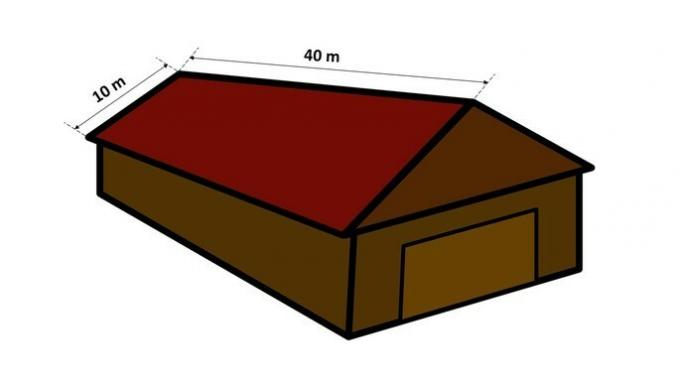Check out the Portuguese activities for the 6th year. They comprise the following themes and objects of knowledge: figures of speech, production of texts, morphosyntax, lexicon, advertising texts, production of oral interviews and interpretation of poem.
Activity 1: figures of speech
Ability: (EF67LP38) Analyze the meaning effects of using figures of speech, such as comparison, metaphor, metonymy, personification, hyperbole, among others.


Activity 2: opinion article
Ability: (EF69LP35) Plan scientific dissemination texts, based on the elaboration of a scheme that considers previous research, notes and summaries of readings or records experiments or field studies, produce, review and edit texts aimed at disseminating knowledge and data and research results, such as an article by scientific dissemination, opinion article, scientific report, encyclopedia entry, collaborative digital encyclopedia entry, infographic, report, report scientific experiment, (multimedia) field report, taking into account their production contexts, which may involve the provision of information and knowledge in circulation in a more accessible format for a specific audience or the dissemination of knowledge arising from bibliographical research, scientific experiments and studies of field carried out.
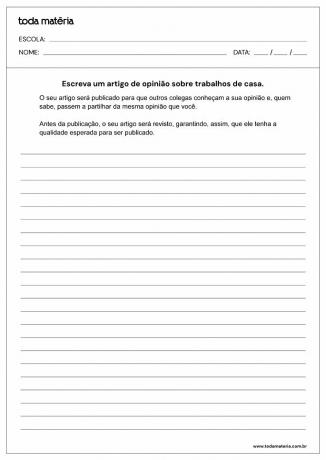
Activity tracking: After the text is written, the teacher will organize a draw. In this draw, the teacher will place pieces of paper with numbers, according to the number of students, as follows: two pieces of paper with the number 1, two pieces of paper with the number 2 and so on.
The objective is for students who get the same number to review each other's texts, always with the teacher's help. If the number of students is odd, the teacher places three papers with the same number instead of two.
Activity 3: verbal and nominal agreement
Ability: (EF06LP06) Appropriately employ the rules of nominal agreement (relationships between nouns and their determiners) and the rules of verbal agreement (relationships between the verb and the simple and compound).

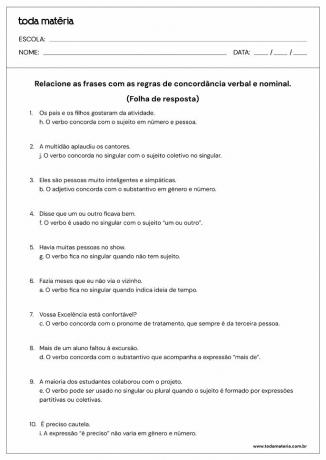
Activity 4: lexicon
Ability: (EF06LP03) Analyze differences in meaning between words in a synonymous series.
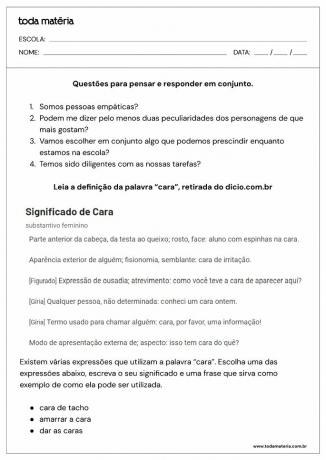
Activity tracking: After thinking and answering the questions together, the teacher should talk to the students about the difficulty in answering them: Was it difficult to answer the questions? What could have made the task difficult?
The teacher should explain that we are not always familiar with certain words and, when this happens, the best thing to do is to turn to a dictionary. It is an opportune moment to remember how the dictionary can be used and explain the symbols and abbreviations used in the entries.
Activity 5: advertising text
Ability: (EF69LP04) Identify and analyze the effects of meaning that strengthen persuasion in advertising texts, relating persuasion strategies and appeal to consumption with the linguistic-discursive resources used, such as images, verbal tense, word games, figures of speech, etc., with a view to promoting consumption practices conscious.
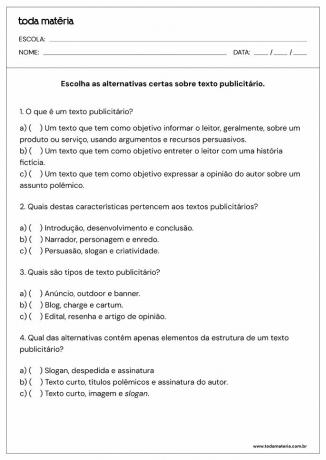
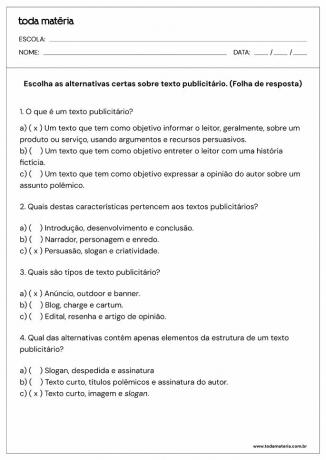
Activity 6: production of oral interviews
Ability: (EF67LP14) Define the context of the interview production (objectives, what you want to achieve, why the interviewee, etc.), gather information about the interviewee and the event or topic in question, prepare the question script and conduct oral interviews with those involved or experts related to the reported fact or the topic in question agenda, using a previously prepared script and formulating other questions based on the answers given and, when applicable, selecting parts, transcribing and proceeding with a written edition of the text, adapting it to its publication context, the compositional construction of the genre and ensuring the relevance of the information maintained and the continuity theme.
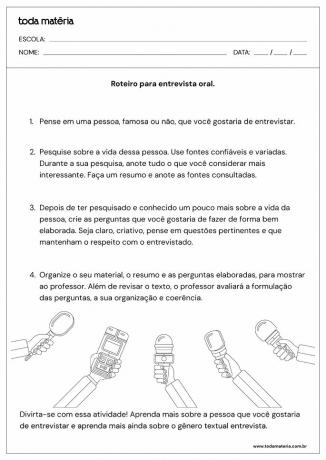
Activity 7: poem interpretation
Ability: (EF69LP48) Interpret, in poems, effects produced by the use of expressive sound resources (stanza, rhymes, alliteration, etc.), semantic (figures of speech, for example), spatial graph (distribution of the graphic spot on the paper), images and their relationship with the text verbal.
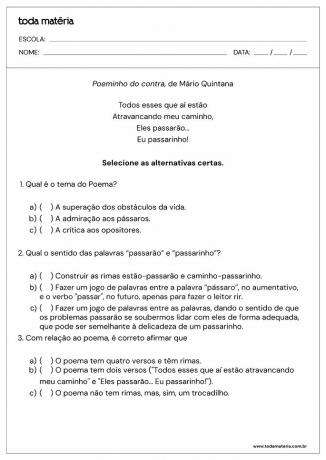

Read too:
- Text interpretation activities for 6th grade
- Word class exercises for 6th grade
- Exercises on adjectives for 6th grade
FERNANDES, Márcia. 6th grade Portuguese activities (to print).All Matter, [n.d.]. Available in: https://www.todamateria.com.br/atividades-de-portugues-6-ano/. Access at:
See too
- Mathematics lesson plans for 6th grade
- Addition lesson plan for 1st grade with activities
- Mathematics lesson plans (2nd year of Elementary School)
- Portuguese lesson plans (2nd year of Elementary School)
- Portuguese activities for the 2nd year (Elementary School)
- Lesson plans for Early Childhood Education
- Remote lesson plan
- Portuguese lesson plans (1st year of Elementary School)

